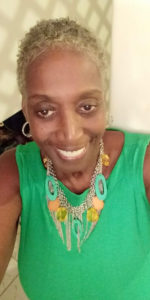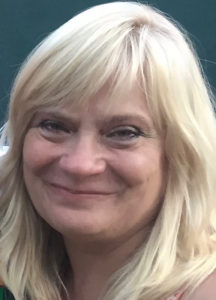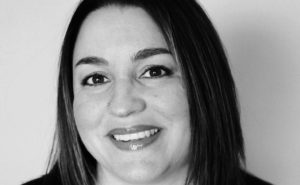
Back in 2014, while Janet Turnbull Krigger was still working at the Department of Human Services, she helped arrange a meeting between a cross-section of staff and a Source representative researching the ins and outs of social work. The room was packed with personnel.
Six years later, “there’s just two left,” Krigger said. Some retired early, some relocated “and some of them left social work altogether,” victims of burn-out and a lack of resources.
She is just one of the professionals who has long lamented the dearth of trained social workers in the Virgin Islands. In 2014, DHS, the largest employer of social workers, had 49 positions on its books, with only 36 of them filled.
“We have to get more people from the Virgin Islands in the field, or it’s going to go the way of the nursing program,” Krigger said, referring to the territory’s reliance on visiting nurses to supplement the resident nursing population.
Widespread concern for falling numbers in the social work profession was the impetus for creating a master’s in social work degree at the University of the Virgin Islands. After two years of planning, the new program is set to launch in the fall semester.
Elizabeth Jaeger, UVI associate professor and chair of the social sciences department, said the move actually came from the Legislature, which discussed the issue at budget hearings in 2018 and eventually appropriated funding for it.

“Instead of us approaching them, they approached us,” she said, crediting Sen. Kurt Vialet with spearheading the effort. “He saw a huge need,” she said.
The money enabled UVI to hire two consultants to work on developing the program. They met with current and former commissioners of Human Services, leaders of various nonprofit groups and others with knowledge of the community’s needs, Jaeger said.
“Social workers hold up the fabric of the community,” Jaeger said. But with so few now in the mix, that grip is slipping.
“We don’t have a full-time social worker on St. John, at all,” she said. “That gives you a little idea of the desperation.”
And she worries that things will get worse.
In the 1980s UVI partnered with Norfolk University on a degree program that resulted in filling a lot of social work vacancies in the territory, she said. But that ended a long time ago.
“We’re coming to a turning point where those [professionals] that we had are retiring,” she said. At the same time, she believes the need for social workers is increasing as the community suffers from economic and other stresses, including gun violence and natural disasters.
The curriculum is being built with those factors in mind. The intent is to educate people specifically for work in the Caribbean and especially in the Virgin Islands.

Paula Tracey, UVI associate professor of social work, is the MSW program director. She’s been in place since January and worked with the consultants on designing the program with an eye toward accreditation.
There will be an emphasis on Caribbean cultural aspects, she said, and on trauma-informed care, as well as hurricane-related stress. While the focus is regional, students also will be prepared to work in other jurisdictions so their job prospects will not be limited.
“There’s a lot of misconception about what we do,” Tracey said. “In social work, we do a lot of different things.”
Best known are the Human Services caseworkers who work with children and families. But there are social workers in Health and Education and in a myriad of private organizations too.
According to the U.S. Bureau of Labor Statistics, “Social workers help people cope with challenges in their lives. They help with a wide range of situations, such as adopting a child or being diagnosed with a terminal illness. Advocacy is an important aspect” of the job.
The bureau’s website states the following as typical aspects of the work:
– Identify people and communities in need of help.
– Assess client’s needs, situations, strengths and support networks to determine their goals.
– Help clients adjust to changes and challenges in their lives, such as illness, divorce or unemployment.
– Research, refer and advocate for community resources, such as food stamps, child care and health care to assist and improve a client’s well-being.
– Respond to crisis situations such as child abuse and mental health emergencies.
– Follow up with clients to ensure that their situations have improved.
– Maintain case files and records.
– Develop and evaluate programs and services to ensure that basic client needs are met.
– Provide psychotherapy services.
UVI’s master’s degree is a two-year program designed for full-time students but with flexible scheduling that will allow people to pursue a degree while working, Tracey said. Ideally, classes will be a mix of virtual and in-person learning unless circumstances involving COVID-19 dictate it be all remote learning initially.
The program is open to people who have a bachelor’s degree in any discipline, although a related field is desirable. Tracey said many applicants come from the fields of criminal justice or psychology.
Course accreditation is a three-year process and Tracey said it will be retroactive to cover the first graduates of the two-year degree program.
Social work is a demanding profession, Krigger said.
“It’s hard work,” she said, and stressful. “You don’t just turn it off” even though you try. “You still take it home with you.”
“It doesn’t pay the big bucks” either, she said.
The median pay for a social worker in the U.S. in 2019 was $50,470, according to the Bureau of Labor Statistics. That means half of the workers made more than that, and half made less. At the low end of the pay scale, 10 percent of social workers earned less than $31,790. At the high end, 10 percent made up to $82,540.
But money is not generally the primary motivation for the profession. The attraction is to service, to making a difference in the community.
“What is rewarding is seeing changes in families,” Krigger said. “And you do see that happen … Social workers make a difference. It’s not a cliché.”
More information on the MSW degree program is available online here.





